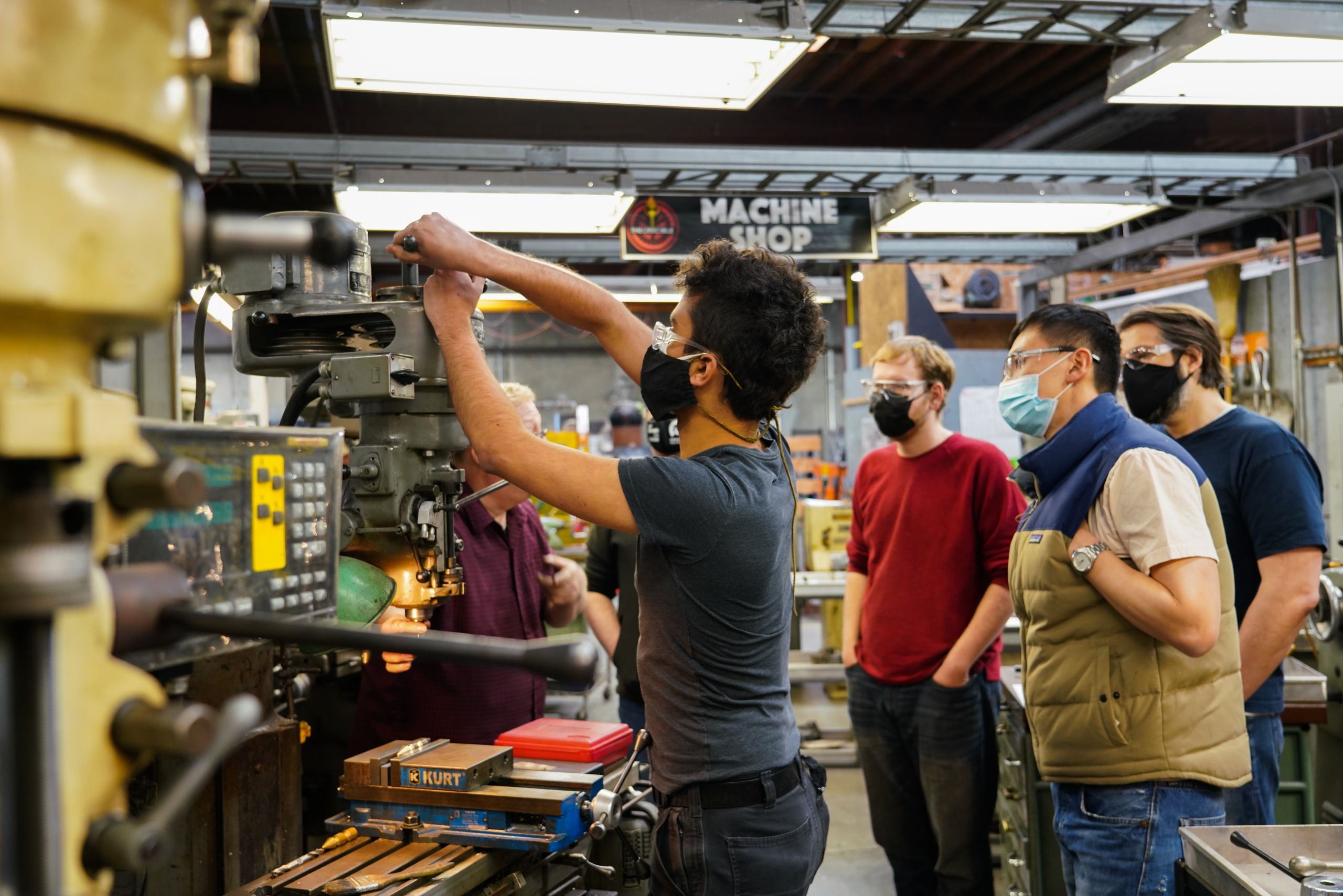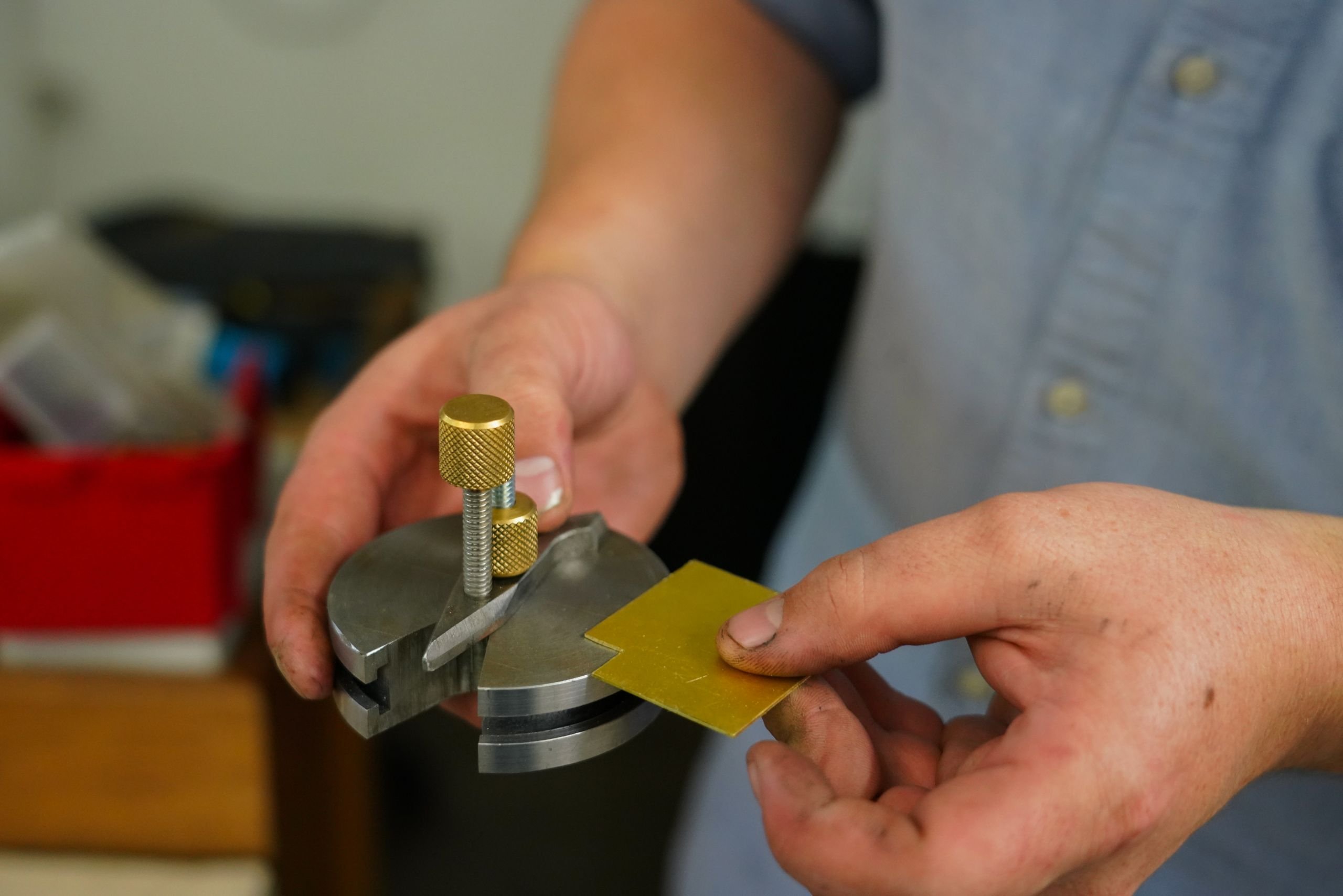MachiningMachine
What Are Machinists?
By Kristin Arzt
Machinists work in machine shops and manufacturing spaces to create precise tools and parts for mechanical equipment and objects. This guide will cover what machinists do in their everyday jobs and the big-picture of being a machinist.
What is a machinist?
A machinist is a trained tradesperson with the skills and knowledge to create tools, parts, and objects by operating milling and drilling machines, grinders, and lathes in a machine shop. It is an extremely precise job, requiring the machinist to make cuts to at least one-thousandth of an inch. Machinists are in demand and begin working in entry-level positions and apprenticeships. You can learn to become a machinist on the job or in a trade school.

What do machinists do?
Machinists use machining tools to produce precise parts. They operate equipment such as mills, lathes, drills, and grinders to manufacture objects, ranging from simple elements found in a motorcycle frame to something more complex like a piece of a car engine.
Generally, a machinist’s job requires them to fabricate, modify, or repair mechanical objects. Therefore, they must have a strong knowledge of mechanics, mathematics, metallic properties, and machining.
Are machinists in high demand?
Experienced and knowledgeable machinists are highly sought-after tradespersons. There are many job opportunities in utilitarian, transportation, and military industries. While mass-produced parts are more common today, machinists are still necessary to install and calibrate the parts. This is even more true for custom machined parts.
According to the Bureau of Labor Statistics, the overall employment of machinists is expected to grow three percent in the next ten years. CNC machining is a particularly relevant and necessary profession. As long as mechanical objects operate with valves, joints, and bearings, machinists will be necessary.

How to become a machinist
It takes about four to five years for machinists to become fully trained. It is common for machinists to train on the job, but trade schools also offer machining degrees. The only degree typically required of machinists is a GED or high school diploma. Once you have that, you can become a machinist through apprenticeship programs, trade schools, or community college programs. While some machinists hold associate degrees in the field, it is not necessarily required.
The Crucible’s Machine Shop offers classes for all levels of machinists, from absolute beginner-level classes to more experienced, self-directed labs. These classes are open to anyone over the age of 18. For example, our beginner-level Turning and Milling class introduces you to basic machining on a mill and lathe. Next level machining instruction includes machine design and operation, materials, blueprint reading, tooling, and precision measurement.
In our continuing-level Machine Shop Lab, experienced students have access to our fully-equipped Machine Shop and are supervised by a studio technician. You have the opportunity to create self-directed projects using our equipment and tools.

Machinist FAQs
How much does a machinist make?
According to the Bureau of Labor Statistics, machinists make an average of $47,040 annually or $22.62 hourly. Skilled machinists that work in utility and military companies can earn over $100,000 per year.
Is machinist a good career?
With a low barrier of entry, high entry-level pay, and positive job outlook, a career as a machinist is a great opportunity. Becoming a machinist requires time and effort, but it is a rewarding and stimulating profession.
What is a CNC machinist?
CNC stands for Computerized Numerical Control and a computerized manufacturing process with pre-programmed codes that control equipment. CNC machinists operate heavy machinery to cut, grind, and drill into materials to manufacture precise parts. CNC machinists control the machines’ speed, pattern, materials, and programs to ensure the utmost precision.
Is being a machinist stressful?
Machining can be a stressful occupation, as it requires intense precision and high attention to detail. Therefore, safety in a machine shop is of the utmost importance. CNN named machining one of the top ten most dangerous jobs in the United States. Accidents do happen but can be avoided with strict attention and equipment upkeep.






